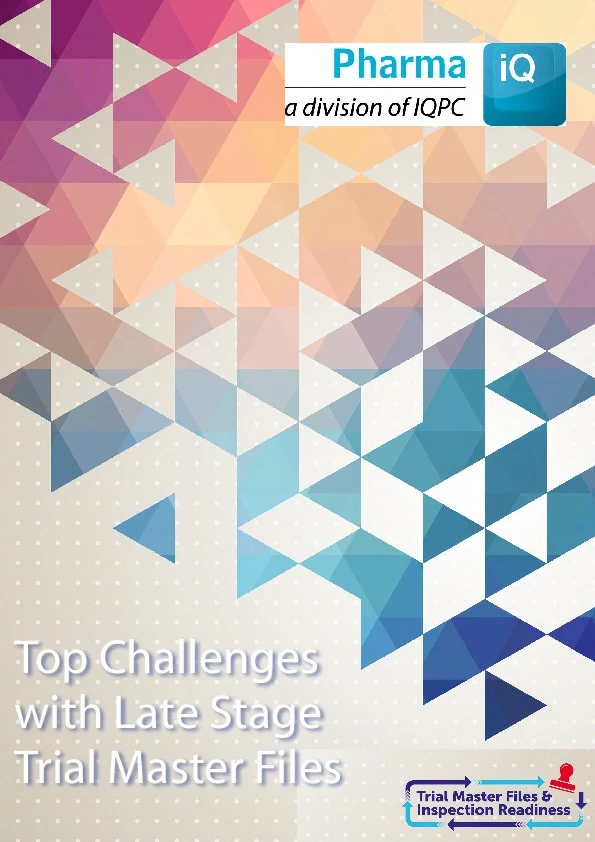Top challenges with late stage e-TMFs
Add bookmark
We respect your privacy, by clicking "Download Your Copy" you agree to having your details passed onto the sponsor who may promote similar products and services related to your area of interest subject to their privacy policy. You have the right to object. In addition, you will receive our e-newsletter, including information on related online learning opportunities. For further information on how we process and monitor your personal data, and information about your privacy and opt-out rights, click here.
The transition from a paper to an electronic Trial Master File (TMF) system is a significant task. In many cases, some pharma and biotech firms (sponsors) may find that in the late stages of digitizing their TMF system some documents are left as hard copies. Ahead of the 2017 Trial Master File conference we examine the top challenges that are attached to operating trials with a late stage TMF.
A TMF is not merely an archiving tool
Some professionals wrongly view the TMF as merely a filing method to archive documentation, when in reality the TMF acts as a storyteller. It is designed to tell the story of how the study is being structured and how certain stages are reached to an auditor / investigator.
Rather than viewing e-TMF as an archive tool, using it to generate the document from first draft to finalisation, the workflow is vastly simplified. With paper TMFs, feedback is collected by email and then documents are printed and stored appropriately. eTMFs allow for comments and other activities to be consolidated through one platform. A sponsor could be handed a critical finding if an inspector identifies inconsistencies between a study’s specifications, company policies and the ICH GCP regulatory guidelines. For example, if a firm decided to almost deviate from an SOP or an internal working document, an inspector could assume they were deviating from company processes. A critical finding could result in a financial penalty, or worse, the termination of a study.
Therefore, it’s important that consistencies are maintained throughout every individuals work relating to a TMF. The task of preserving the TMF’s quality needs to be enforced as the responsibility of every study team member.
[inlinead]
Change management
Change management is one of the dominant challenges when implementing a late stage TMF. Some professionals are slow to adapt to using the electronic tools and processes to manage documents even when the benefits are made clear. It’s important to ensure that the team is willing to adapt to the new processes required for the eTMF, and this willingness may not occur naturally. Training is going to be a likely necessity for a handful of people within the business.
For sponsors or CROs working with a TMF that is mostly electronic, Michael Zorer, Head of Clinical Operations at AOP Orphan Pharmaceuticals recommends defining the system to be used for the entire trial from the outset. This system could encompass naming conventions and ensuring documents are consistently uploaded. It can prove painful to try to implement these concepts half way through a trial.
Cost
One of the downfalls to the implementation of an eTMF is the expense required. In comparison to a paper TMF, it costs considerably more to implement an eTMF study, especially with a debut eTMF study. There are various updated directives focusing tightly on eTMF, like the ICH GCP addendum. As part of the implementation process consultants may be required to review and realign internal processes to ensure everything is compliant and effective, which will require funding.
Other challenges tackled in the ebook:
- Collaboration
- Inspection readiness
- Following a validated process
- Quality metrics
- Duplicates
- Integration – centralised system
Download the ebook to continue reading




















